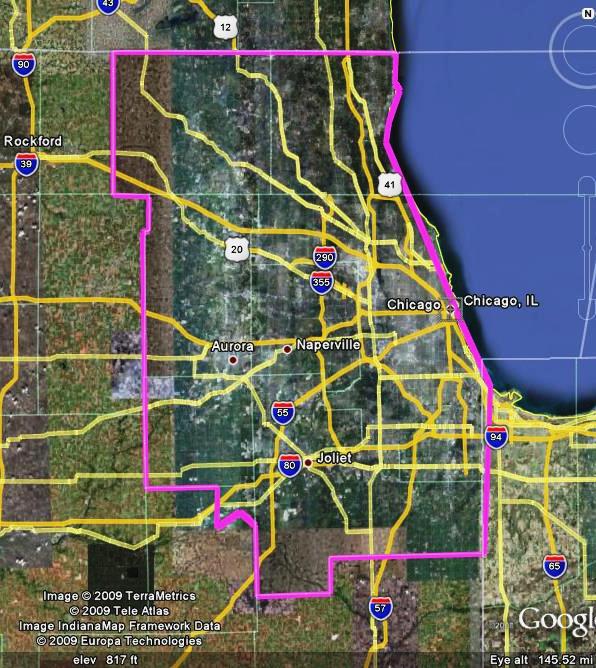One of the recurring themes of my writing (for example, here) has been that, to achieve sustainability in our cities, suburbs, and rural areas, we need to get beyond the accidents of history that comprise our local jurisdictions. Environmental, economic, and social patterns do not respect jurisdictional lines, and it is essential that our solutions not be confined to them, either.
“Chicagoland,” for example, comprises parts of eight counties in northeastern Illinois. When I was researching a book in the 1990s, I ran across one researcher’s account that put metropolitan Chicago’s number of legal jurisdictions at 267 separate entities, with around 1200 quasi-jurisdictions of various kinds. (And that may not even include the portions of metro Chicago that are in Indiana; most representations of metro Chicago don’t.) Those numbers may be even higher now.
In my own life, my wife and I live in Washington, DC; my bike is currently in the shop for repairs in the state of Maryland; my wife just called me from the Commonwealth of Virginia, where she works. She passes through several municipalities every day just getting to work and back, frequently stopping along the way for errands. I’m sure readers are nodding their heads: none of this is in the least bit unusual.
But, for the most part, unfortunately, policy decisions are made at the most local of levels — one of those 267 legal entities — or at the state level. With few exceptions, metropolitan areas have little in the way of legal authority. Especially for transportation and environmental issues, this is dysfunctional.
Fragmented jurisdictions are also a major cause of sprawl, by the way, especially as they compete with one another for new development to increase their tax revenues — sometimes actually diminishing those revenues in the process, as the jurisdictions offer tax breaks or other subsidies to out-compete their neighbors.
This is far from an easy problem to address. But I am encouraged that President Obama has issued an executive order creating an Office of Urban Policy with an agenda to focus on entire metropolitan regions, not just cities.
There are reasons to be both hopeful and cautious. For more, including images and links, go here





Comments